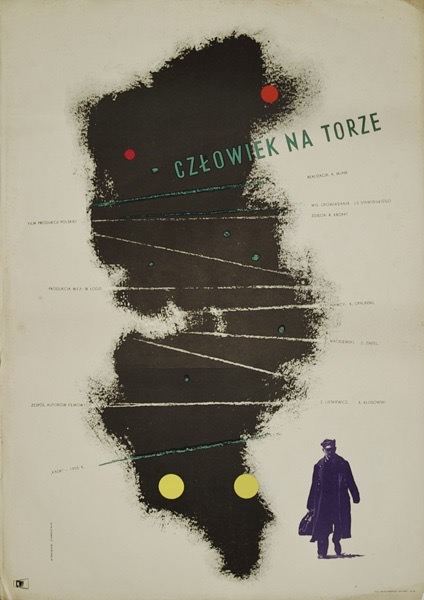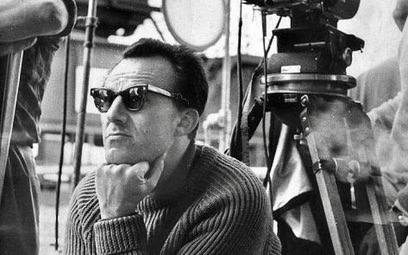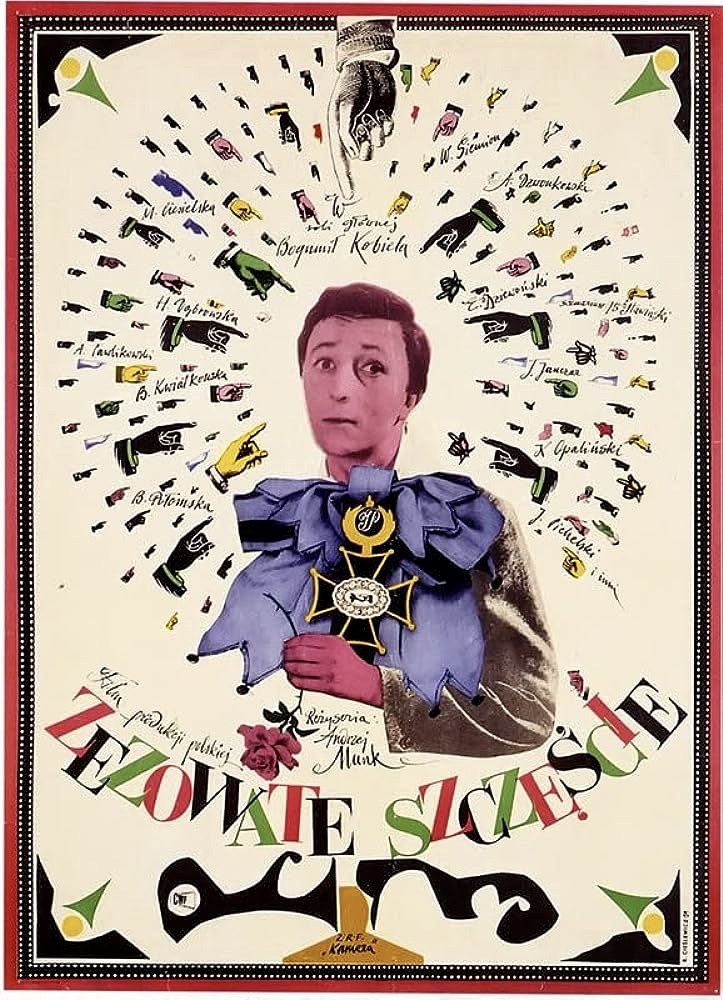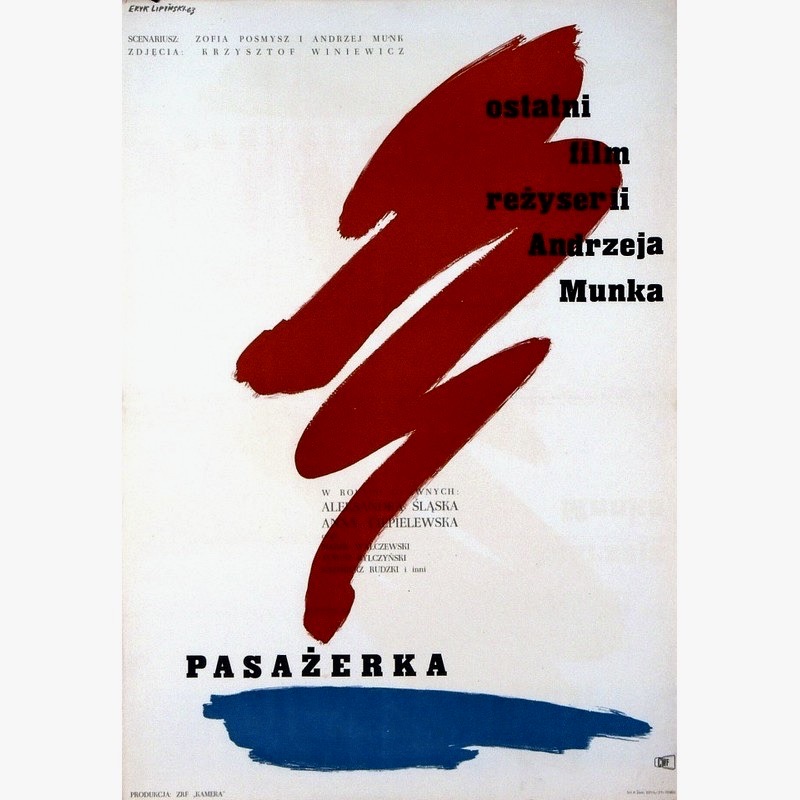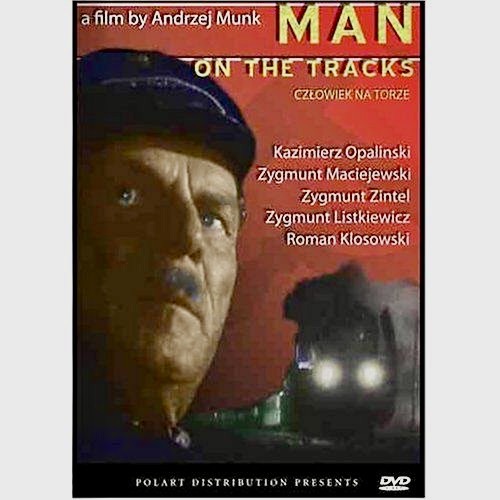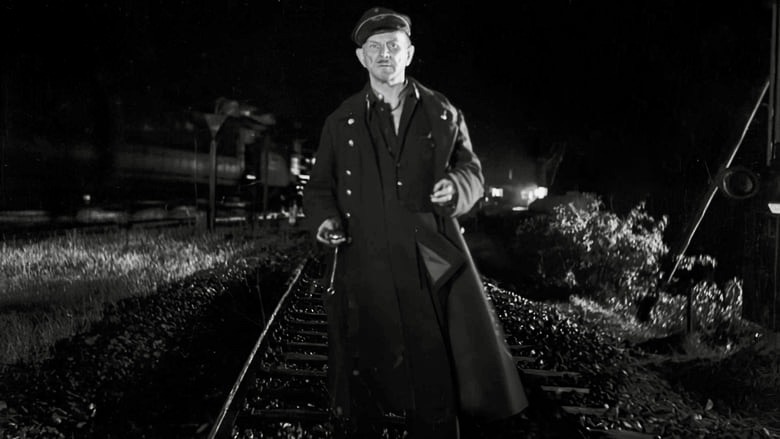
A train rushes through the night somewhere in Poland and the engineer receives an all-clear signal from the local lineman as it moves full speed ahead through a rural crossing. Suddenly a man appears in the train headlights and seems to be warning the engineer of some impending danger but is struck down before the train can be stopped. The victim is Wladyslaw Orzechowski, a former railroad employee who was recently goaded into retirement. Czlowiek na Torze (English title: Man on the Tracks, 1957) is, in some ways, a mystery except that we know the identity of the victim and how he died. The big question is why and Polish director Andrzej Munk presents the facts of the case in the form of a crime procedural crossed with a flashback structure seemingly influenced by the 1950 Japanese film Rashomon. Four people, including three witnesses, give their versions of the event, and each one adds another level of insight and complexity to the tragedy.
Man on the Tracks was Munk’s first feature length movie after working primarily in the documentary genre where he turned out short films like the 1953 offering A Railwayman’s Word. Although the film casts a critical eye toward socialist party politics circa 1950 (the year the story takes place) and contains some satiric observations about Stalin’s five-year-plan that Poland was attempting to enforce, the film is much more of an engrossing character study than a political drama. More importantly, Man on the Tracks is a realistic look at the lives of railroad men, their rank and job responsibilities and how they interact with each other in the wake of Stalin’s death. At the center of it is Orzechowski (Kazimierz Opalinski), a forty-year railroad veteran whose perfectionism and high standards for his team make him an intimidating presence among the younger workers.

In the aftermath of Orzechowski’s death, Krokus (Janusz Paluszkiewicz), a party official, heads a four man committee of union and railroad officials, to determine whether the accident was an act of sabotage, murder, suicide or something else. As Munk leads the viewer through a series of flashbacks by witnesses, unsubstantiated claims about Orzechowski’s motives are dismissed one after the other until we get to the truth of the matter, thanks to Krokus’s thorough analysis of the evidence and first hand accounts.
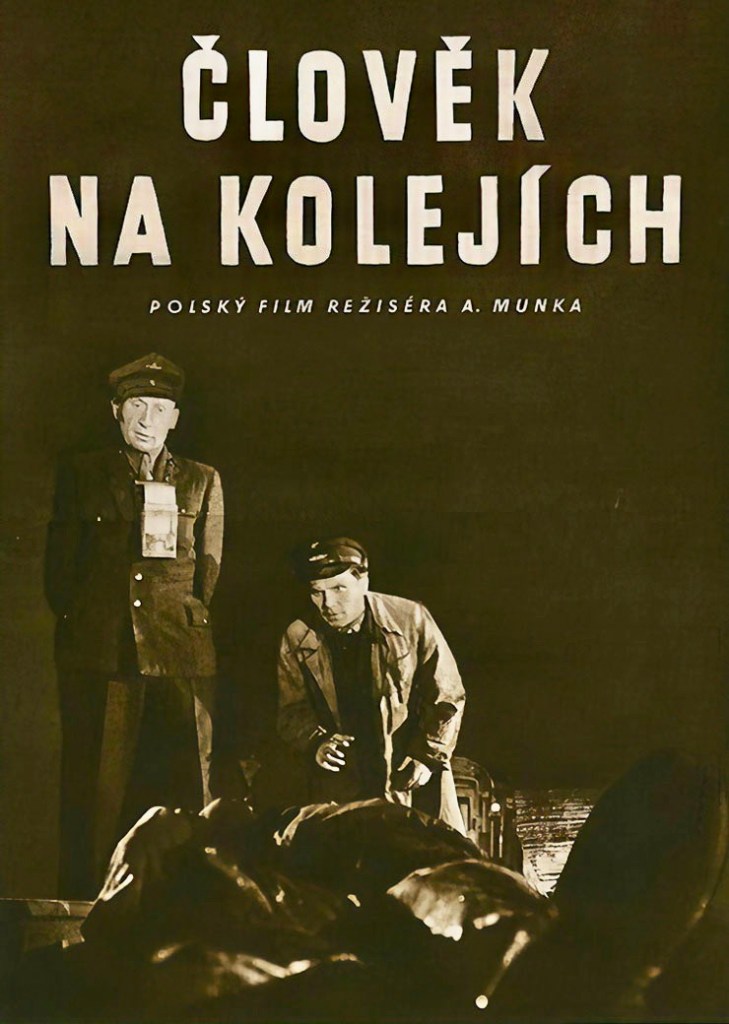
Orzechowski emerges as someone who is both sympathetic and his own worst enemy. His fall from grace is no less tragic than Shakespeare’s tale of King Lear. A highly skilled and experienced engineer, the man’s excessive pride in his work makes him an insufferable and haughty employee who treats his crew like servants. He also resists the orders of the railroad management to economize and work as a team member to achieve the goals of the governing party. Part of his anger is aimed at younger workers who don’t have his expertise but are overly ambitious and ready to take his place. This rebellious attitude will later be cited as a possible motive for sabotage.

Kazimierz Opalinski’s performance as the elderly engineer is one for the ages and should have won him numerous acting awards but it is considered one of his career high points. He would go to act in two more films directed by Munk as well as appear in such Polish film classics as The Saragossa Manuscript (1965), Jerzy Kawalerowicz’s Pharaoh (1966) and Jerzy Hoffman’s historical drama The Deluge (1974), an Oscar nominee for Best Foreign Language Film.

Equally impressive among the main cast members of Man on the Tracks are Zygmunt Maciejewski as station master Tuszka and Zygmunt Listkiewicz as Zapora, both of whom clash with Orzechowski over his work practices and attitude. Tuszka, in particular, had once worked under the dictatorial engineer but was promoted above him and now hires the grateful Zapora as a replacement for a man on Orzechowski’s crew. Part of Tuszka’s objective is to have Zapora spy on the engineer’s behavior and report any wrongdoing but also to groom the younger worker as Orzechowski’s replacement.
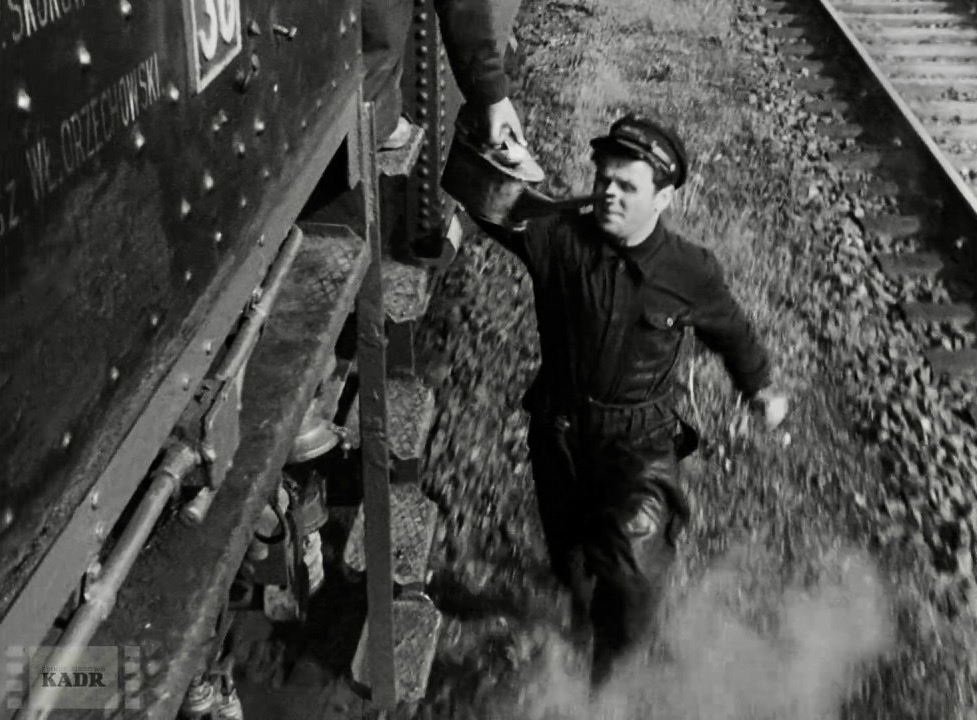
Zapora has a much tougher time of it trying to earn Orzechowski’s respect and any attempt to establish a friendly working relationship with the older man is rebuffed. He even risks his life by climbing outside the speeding train to fix a steam pressure gauge and director Munk does a superb job of showing how Tuszka and Zapore (via their flashback accounts) slowly overcome their antagonistic relationship with the veteran railroad worker. They end up moving past their negative views to acknowledging the essence of Orzechowski. Outwardly, he didn’t seem to be a warm, compassionate person or an amiable co-worker but the reality was that he was solely interested in achieving the highest level of job excellence in his profession.

In fact, Orzechowski identifies so closely with his job that when he is forced to retire, he loses his identity and self-worth. Any doubts about him being a saboteur for reasons of revenge or of being used as a pawn in a subversive act are put to rest in a final flashback by the lineman Salata (Zygmunt Zintel) who lies to the authorities about what really happened that night. But the viewer sees what Salata missed. An innocent mistake caused by Salata’s children as they unintentionally distract their father from his duties is the unsuspected human error in the case.

Man on the Tracks has the look and feel of a film noir but it is grounded in a highly realistic milieu which recalls the early Italian Neorealism masterworks. The often difficult and physically exhausting jobs of the railroad workers are also brought to life by an immersive soundtrack that substitutes the noise and sound effects of trains and railyards for a traditional music score.
Man on the Tracks was praised by critics in Poland and Eastern European countries during its initial release and Andrzej Munk was selected as Best Director at the Karlovy Vary International Film Festival in the Czech Republic in 1957. Since then, the film has been overshadowed by Munk’s later work that includes probably his best-known film, Eroica (an ironic reference to Beethoven’s Third Symphony). A two-part film in which the theme is heroism (and treated in a satiric manner), the first section depicts a cowardly bon-vivant who tries to avoid joining the army during the Warsaw Uprising and ends becoming an unintentional hero. The second section focuses on a POW camp for Polish soldiers who are so desperate to escape that they believe in a mythic tale of a fellow prisoner who got away. Munk had originally shot a third story about a woman masquerading as a nun in a remote mountain outpost but decided to delete it from Eroica because it lacked the quality of the other two stories.
Other key movies in Munk’s filmography include Zezowate Szczescie (English title: Bad Luck, 1960), a black comedy which covers a period in Polish history (1939 – 1950) as embodied by a non-descript, self-absorbed student who eventually morphs into a Stalinist bureaucrat, and Pasazerka (English title: Passenger, 1963). The latter film is the story of a female SS officer in the concentration camp of Auschwitz and was Munk’s final film. He died in a car crash in September 1961 at age 39 before he was finished shooting. According to Richard Brody of The New Yorker: “His associates (principally Witold Lesiewicz) completed the film, or, rather, finished it in a way that reflects its fragmentary state while calling attention to Munk’s plans and ideas, and emphasizing the effort to realize them. The result is a movie that dramatizes the very difficulty of filming the Holocaust. The film’s self-questioning of its dramatic form both conveys and respects the experience of its victims, and it does so in a bold, risky way…” Even though the less than 63-minute film is more of a sketch than a feature, it was nominated for two awards at the Cannes Film Festival – It won a Special Mention citation for Munk and his body of work and the director was also nominated for the Palm d’Or.
Munk, like his filmmaking peer Andrzej Wajda (Kanal, Ashes and Diamonds) was born in 1926 and was one of the most important Polish directors of his generation, but you would think he would be better represented on Blu-ray and DVD for film lovers. Unlike Wajda, he does not have a box set dedicated to him at The Criterion Collection or any other prestigious art house Blu-ray distributor. However, you can still find decent DVD copies of Man on the Tracks and Eroica from Facets DVD in Chicago. Both are in need of a complete film restoration and perhaps that might happen someday.
Other links of interest:
https://www.wsws.org/en/articles/2014/10/13/munk-o13.html
https://culture.pl/en/artist/andrzej-munk
https://culture.pl/en/work/man-on-the-tracks-andrzej-munk
https://akademiapolskiegofilmu.pl/en/historia-polskiego-filmu/aktorzy/kazimierz-opalinski/174

